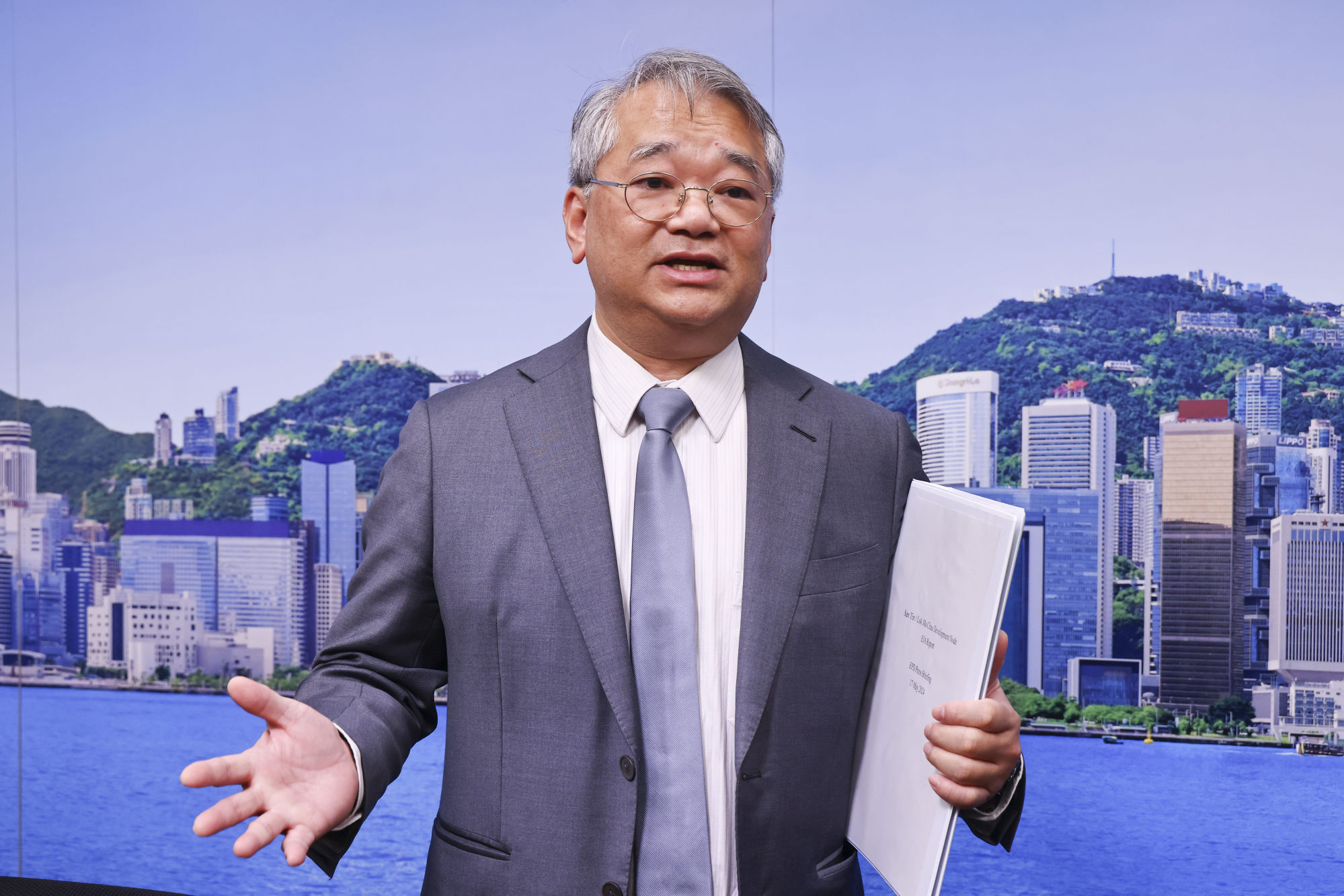Hong Kong environmental authorities place 13 conditions on plan to build tech hub near mainland Chinese border
Responding to concerns from green groups, the environmental official stressed the impact assessment was “scientific” and authorities would closely monitor the implementation of mitigation measures.
“After the construction commences, we will monitor the improvement of the ecological environment. If we discover any issues, we will request modifications right away,” he said.
Asked whether the government would face any consequences if the measures failed to offset ecological losses, Chui said authorities were “very confident” about the prospective benefits.
He cited similar mitigation measures forming part of the proposed development works for Yuen Long’s Fung Lok Wai, which were expected to increase the affected land’s ecological function value by 45 per cent.
“There will be action limits and levels, and the event and action plans to make sure that the whole progress will be able to meet the proposed compensation value,” he said.
The Civil Engineering and Development Department is also required to work alongside the Agriculture, Fisheries and Conservation Department for no less than three months before starting the project to coordinate the pond reclamation efforts with mitigation works.
Other conditions include submitting a habitat creation and management plan no less than nine months before pond filling.
It must outline the project’s ecological impacts and mitigation measures.
A detailed design of wildlife corridors, a proposal to enhance the nearby wetland, as well as tree planting plans must also be submitted.
The department should establish an environmental committee that will advise and approve mitigation proposals, as well as monitor their effectiveness, as part of the requirements.
The department must also regularly report to the government-appointed Advisory Council on Environment on its progress in implementing the approved ecological proposals.

Eight of the 13 conditions were forwarded to the council for the director’s consideration last month.
Green groups earlier call on officials to reject the project’s environmental impact assessment on the grounds that the study contained inaccurate information and could be subject to legal challenges.
Chui said he would not comment on whether the report was likely to face a judicial review, but warned of the potential damage caused by legal challenges.
“Judicial review will bring damages to society. No matter who wins or loses, it takes a long time, normally years, to go through the process,” he said.
The technopole will encompass more than 600 hectares of land in San Tin, with half of the site earmarked for developing the innovation and technology industry.
The rest will be turned into a town centre boasting 54,000 flats, with the first residents expected to move there in 2031.
To offset the 90 hectares of fish ponds reclaimed for the project, authorities plan to create the 338-hectare wetland park in Sam Po Shue.
The project is still awaiting approval from the Town Planning Board, which must assess the related land zoning applications and pass its recommendations to the city leader and government advisers to have the final say.